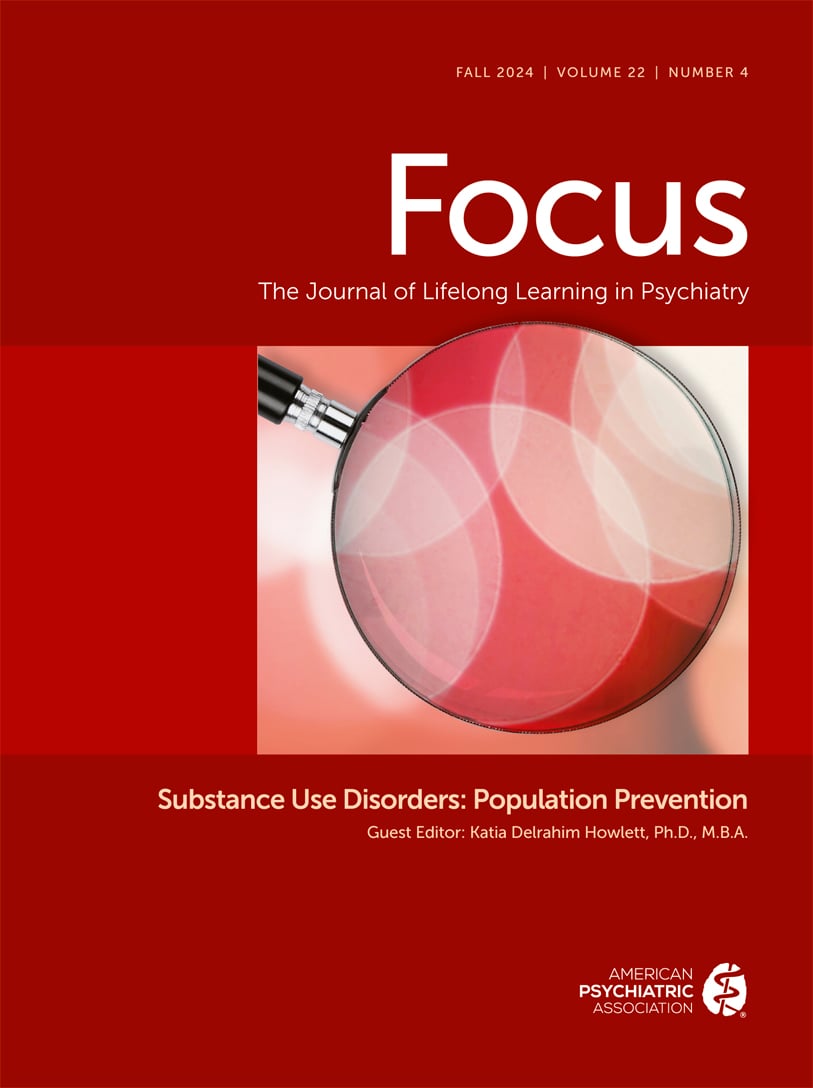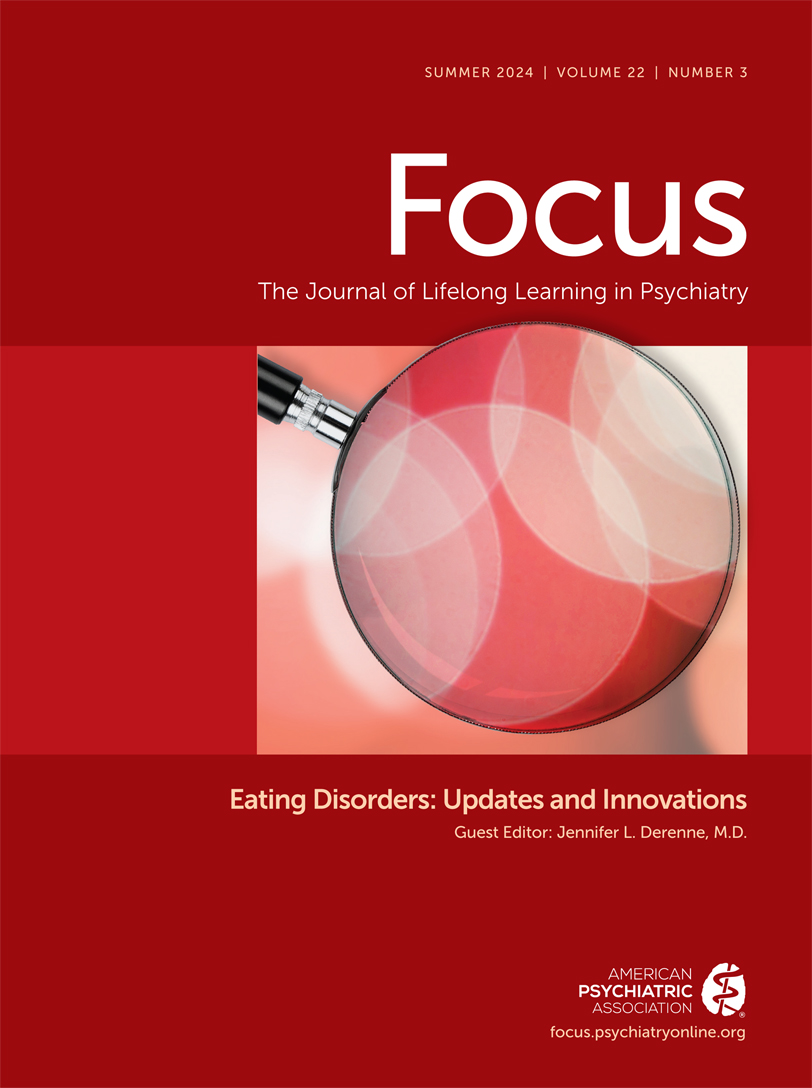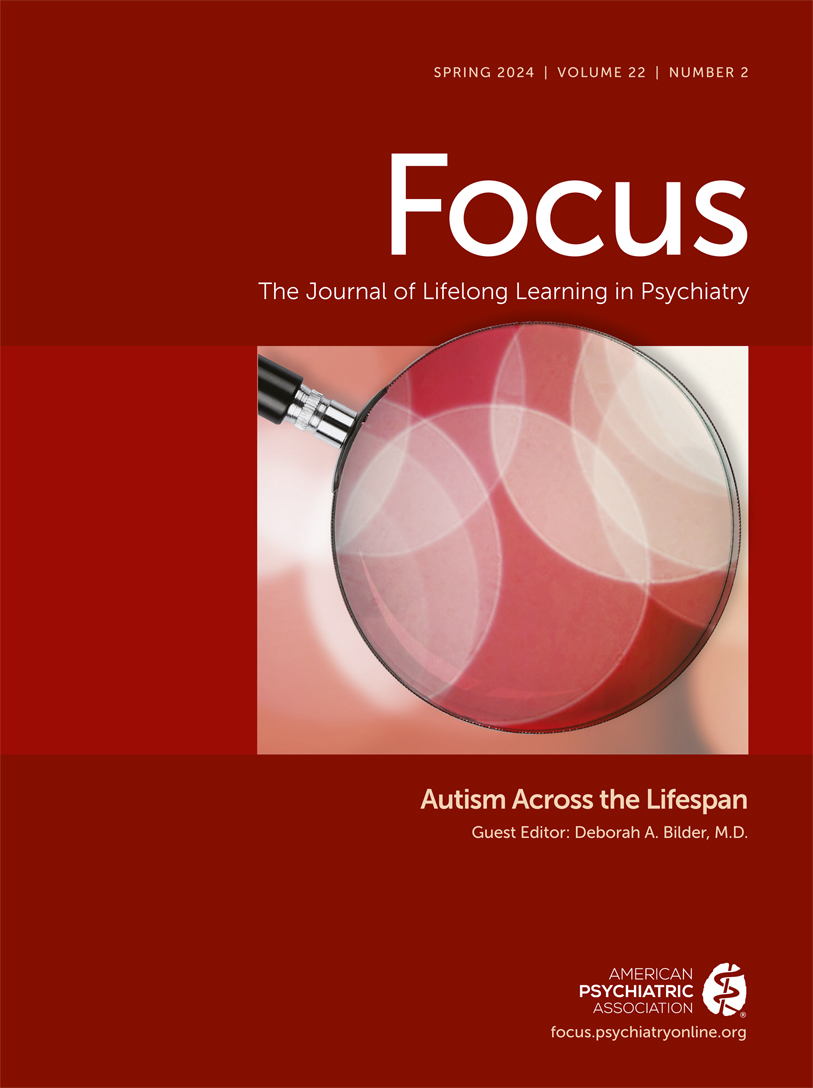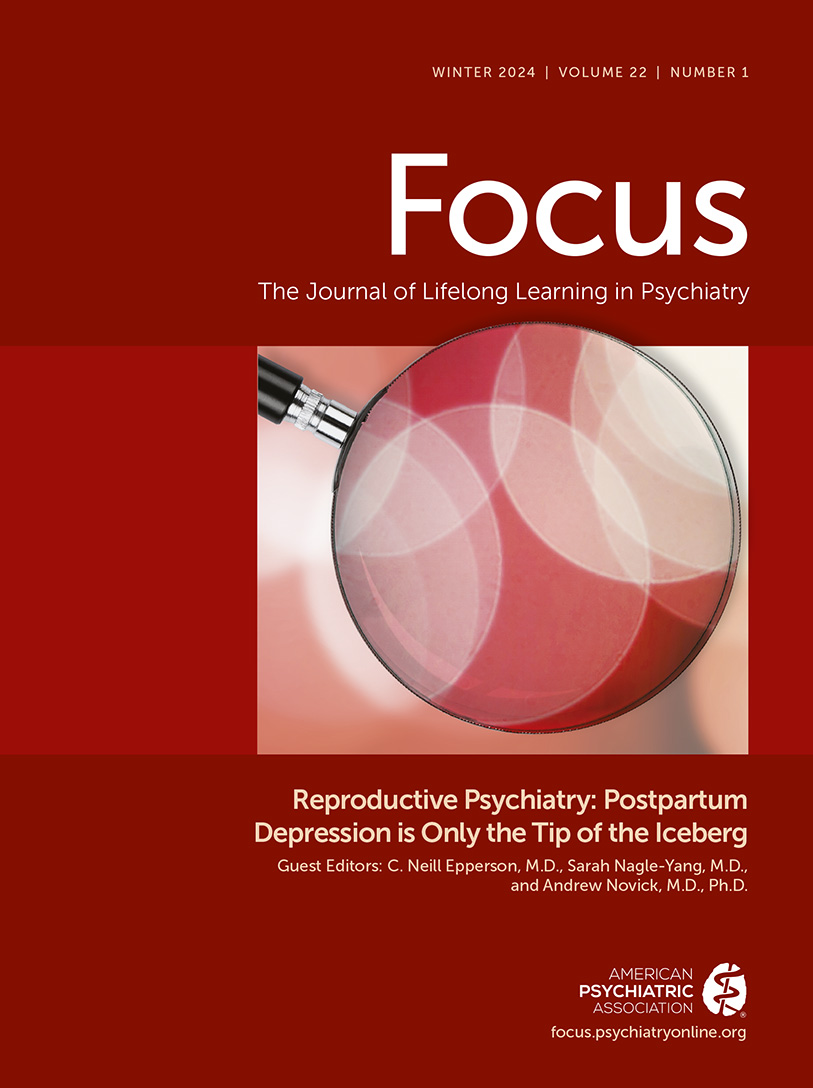Focus
- Volume 21
- Number 1
- January 2023
From the Guest Editor
Reviews
Publication date: 01 January 2023
Pages3–7Emergency psychiatry stands at the fulcrum between the general principles of autonomy and liberty balanced against illnesses that both subvert autonomy and amplify risks for violence and suicide. Although all ...
https://doi.org/10.1176/appi.focus.20220071Publication date: 01 January 2023
Pages8–17Suicide is a serious public health issue and is a leading cause of death worldwide. Suicidal ideation is a common presentation in emergency department (ED) settings, with many nuanced complications. Therefore, understanding screening, assessment, and ...
https://doi.org/10.1176/appi.focus.20220072Publication date: 01 January 2023
Pages18–27How a community responds to behavioral health emergencies is both a public health issue and a social justice issue. Individuals experiencing a behavioral health crisis often receive inadequate care in emergency departments, boarding for hours or days ...
https://doi.org/10.1176/appi.focus.20220074Articles
Contemporary Practices for Medical Evaluation of the Psychiatric Patient in the Emergency Department
Publication date: 01 January 2023
Pages28–34Although emergency department (ED) visits for patients with mental illness are frequent, medical evaluation (i.e., “medical screening”) of patients presenting with psychiatric complaints is inconsistent. This may largely be related to differing goals for ...
https://doi.org/10.1176/appi.focus.20220063Publication date: 01 January 2023
Pages35–45Agitated patients can be dangerous to themselves and others. In fact, severe medical complications and death can occur with severe agitation. Because of this, agitation is considered a medical and psychiatric emergency. Regardless of the treatment setting,...
https://doi.org/10.1176/appi.focus.20220064Publication date: 01 January 2023
Pages46–51Awareness of potential aggression and violence is crucial when treating patients experiencing mental health crises in psychiatric emergency and inpatient settings. To provide a practical overview for health care workers in acute care psychiatry, the ...
https://doi.org/10.1176/appi.focus.20220069Ask the Expert
Communication Commentary
Ethics Commentary
21st-Century Psychiatrist
Publication date: 01 January 2023
Pages63–69Empirically validated treatments for borderline personality disorder rely on fostering self-awareness of one’s internal experience for treatment success, yet these treatments do not include objective tools to assess self-awareness. Integrating biofeedback ...
https://doi.org/10.1176/appi.focus.20220070Bibliography
Abstracts
Influential Publications
Publication date: 01 January 2023
Pages74–79The treatment of severe mental illness has undergone a paradigm shift over the last fifty years, away from a primary emphasis on hospital-based care and toward community-based care. Some of the forces driving this deinstitutionalization have been ...
https://doi.org/10.1176/appi.focus.23022001Publication date: 01 January 2023
Pages80–88Introduction: Agitation in children and adolescents in the emergency department (ED) can be dangerous and distressing for patients, family and staff. We present consensus guidelines for management of agitation among pediatric patients in the ED, including ...
https://doi.org/10.1176/appi.focus.23022005Publication date: 01 January 2023
Pages89–99Previous studies of physical assaults in hospitals focused primarily on inpatient psychiatric units, leaving unanswered questions about the extent to which findings generalize to psychiatric emergency rooms. Assault incident reports and electronic medical ...
https://doi.org/10.1176/appi.focus.23022004Publication date: 01 January 2023
Pages100–105Agitation is a routine and increasingly common presentation to the emergency department (ED). In the wake of a national examination into racism and police use of force, this article aims to extend that reflection into emergency medicine in the management ...
https://doi.org/10.1176/appi.focus.23022007Publication date: 01 January 2023
Pages106–110The evaluation of a patient's competency to consent to treatment, regardless of the test of competency used, can be substantially affected by a number of clinical factors. The authors point out that, in assessing competency, the clinician must consider 1) ...
https://doi.org/10.1176/appi.focus.23022006Past Issues
View Issues Archive
Vol. 22 | No. 4

Vol. 22 | No. 3

Vol. 22 | No. 2
